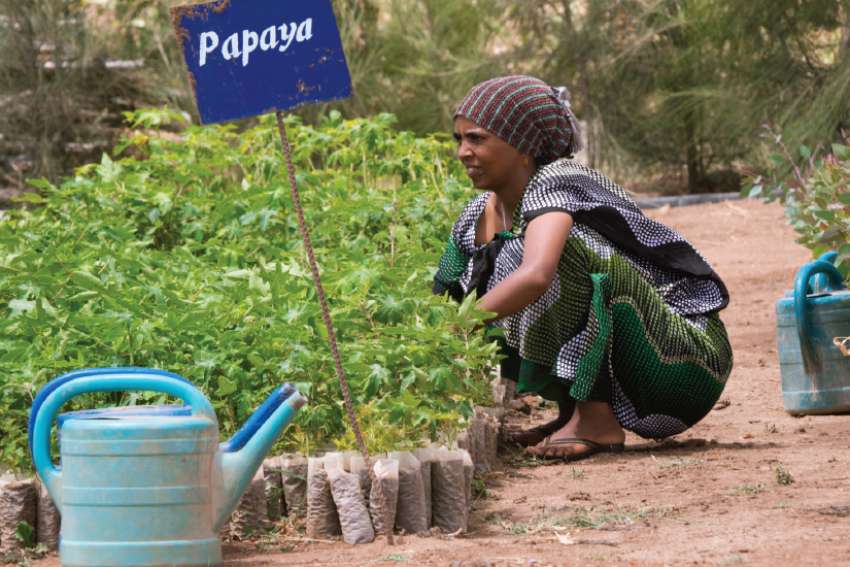With the glut of food in our supermarkets and the immense production capacity of modern industrial agriculture, the persistence of widespread, global hunger can be a head-scratcher for Canadians.
“It’s not our reality here in Canada,” said Development and Peace advocacy and research program officer Marie-Sophie Villeneuve. “Because we don’t see it on our plates, it’s harder to understand this reality.”
But the reality is that our modern, industrial agriculture system feeds only 30 per cent of the world’s population. Seventy per cent depend on small-scale farmers and fishers, according to a report from ETC Group, an Ottawa think-tank that tracks food and environment issues.
According to ETC’s annual “Who Will Feed Us” report, the industrial agriculture system uses 75 per cent of the world’s agricultural land and in the process destroys 75 billion tonnes of topsoil per year. Industrial food systems burn at least 90 per cent of the fossil fuels used for agriculture and soak up 80 per cent of the freshwater used in food production.
By contrast, peasants, small-scale farmers and independent small-scale fishers use up less than 25 per cent of the world’s total agricultural resources but feed 70 per cent of the world’s population, including 3.5 billion rural people mostly resident in poor countries of Africa, Asia and Latin America.
These farmers, which the ETC Group calls “the peasant food web,” are exactly the farmers financed and encouraged by Development and Peace for the last half-century. Canada’s Catholic aid agency relies on its annual Share Lent campaign to continue strengthening efficient food production by and for poor people, said Villeneuve.
“Because of the Share Lent campaign, we can take on long-term projects. We don’t have to follow Global Affairs Canada deadlines,” she said.
Backing peasant farmers and strengthening the peasant food web is simply the best way to ensure most of the world gets fed, said Villeneuve. But there’s more to it than just funding local farmers’ co-operatives, she said.
“It’s working with them to make them economically viable.”
As an example, she says not long ago the big hotels in Haiti were not buying food supplies from the peasant co-operatives. But now they no longer buy chicken from the United States.
“They buy the local chicken and the local eggs, which are better quality,” Villeneuve said.
The Development and Peace approach doesn’t just finance food production in isolation. It treats farming as part of a whole community.
“It’s not local peasants in competition with each other. It’s the whole village. They produce their own food. The gardens inside the village are there to feed the people. The fields around the village are for the economic health and economic growth of the village.” said Villeneuve.
Peasant, small-scale farmers key to fighting world hunger
By Michael Swan, The Catholic RegisterThere are 3.9 billion people hungry or malnourished, including over 800 million who are so chronically underfed they’re actually dying for lack of nutrients, which is why Development and Peace is still asking Canadian Catholics for money.
Please support The Catholic Register
Unlike many media companies, The Catholic Register has never charged readers for access to the news and information on our website. We want to keep our award-winning journalism as widely available as possible. But we need your help.
For more than 125 years, The Register has been a trusted source of faith-based journalism. By making even a small donation you help ensure our future as an important voice in the Catholic Church. If you support the mission of Catholic journalism, please donate today. Thank you.
DONATE

